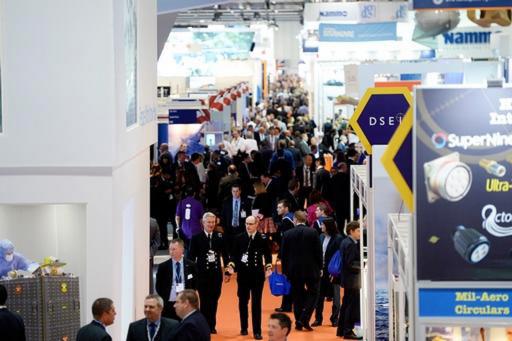By Fang Xiaozhi

Japan will host the Defence and Security Equipment International (DSEI), the world’s largest defense equipment exposition, on November 18 for the first time, news came from Fujisankei Business, according to which about 50 Japanese enterprises have already signed up for the event, the largest number ever. Relevant insider said that several overseas enterprises have expressed their intentions to buy defense equipment from Japan.
Japan is a “strong military industrial power” worthy of the name. Boasting world-leading technological level and production capacity, its military enterprises are able to independently develop and manufacture world advanced warplanes, vessels, tanks, anti-ship, air defense, air-to-air missiles and other weapons and equipment. They also have unique advantages in military-civilian fields such as microelectronics and biology.
At present, the Japanese military industry has formed a system of complete categories, high level and huge potential, and it has been rationally adjusted to become more targeted, forward-looking, intensive and independent. The industry has also carried out international R&D and manufacturing cooperation focused on the central system of large intelligent computer, missile defense system, long-range combat weapon platform, and special-purpose equipment, so as to support the changes in Japan’s military and foreign strategies.
Although Japanese military enterprises feature complete categories and immense manufacturing potential, it has made little progress in internationalization all these years due to the restriction by the pacifist Constitution and the “Three Principles on Arms Exports”. For instance, the pacifist Constitution provides that Japanese military enterprises can only produce weaponry and equipment for Japanese Self-defense Forces (JSDF), but JSDF’s orders take up a very low proportion in those enterprises. As a result, Japanese military enterprises are consistently running under their production capacity, which, coupled with Japan’s resource shortage and serious reliance on the import of rare earth and other “vitamins” needed for weapon production, puts many of them in the red.
Meanwhile, the international environment for military industry has seen profound changes in recent years, with ever faster technological progress, sweeping modular revolution, impact of globalization and the general trend of cross-national cooperation and joint development. All of these are important factors that push the Japanese military industry to accelerate international cooperation.
Against such a background, Japan has begun to actively seek breakthroughs, expand international cooperation and speed up the transformation of military industry in order to achieve its strategic goal of developing the industry and fostering new competitiveness, and lifting the multiple restrictions on the development of its military enterprises.
After the Japanese cabinet passed the “Three Principles on Defense Equipment Transfers” in April 2014 to replace the former “Three Principles on Arms Exports”, the threshold for Japan to export weapon, equipment and military technology has been largely lowered, and it has gradually intensified the joint development and production of weapon and equipment with security partners represented by the United States. Now Japan is going to co-host with the UK the largest defense equipment exposition in the world, once again demonstrating its strategic intention of pushing its military industry to go global and its military enterprises to expand overseas, and becoming an important force in the international military market.
As far as the actual effect is concerned, internationalizing its military industry is not only a diplomatic approach for Japan to strengthen the defense relation with relevant countries, but also a way to promote the establishment of a military cooperation mechanism between them through technology cooperation. It can also demonstrate the capability and strength of Japanese military enterprises, help Japan seize the international arms market, and enhance its political and military influence on the international stage.
As to future development, Japan has a deep foundation of military technologies. In addition to advanced technologies of regular weapons, it also grasps mature nuclear weapon technology, which can be new areas of international cooperation as it explores the overseas market for its military industry.
As Japan deeply engages in the international division of work on arms deal, joint R&D and military industry, it will take a larger share in the international arms market, which in turn will propel the Japanese government to more actively lift the ban on its arms export and realize the strategic transformation of its military industry. At that time, the “military chariot” will have no more restrictions and it will be even harder to put the brake on it.
(The author is a researcher at the BRI Institute of Strategy and International Security, Fudan University)













